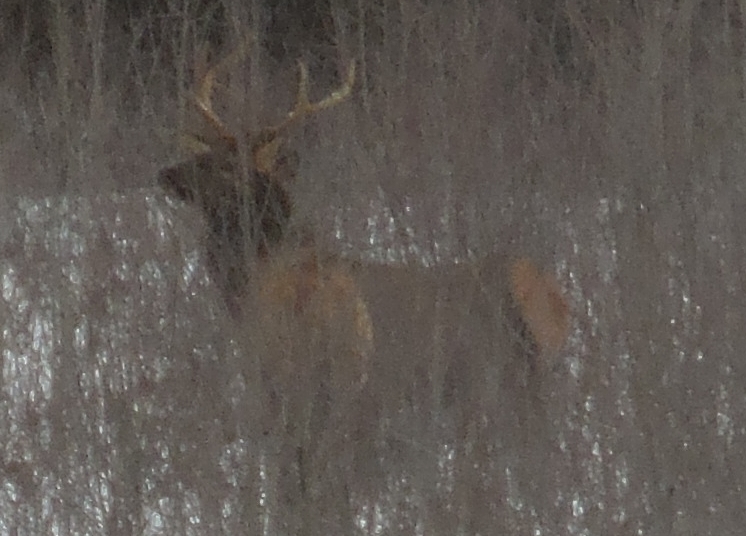 (originally posted at www.mucc.org as "WildLife Wednesday: Why Poaching Jeopardizes Hunting Rights") You love to hunt. I love to hunt. But the actions of a few taint the reputations of us all. Anti-hunting forces are looking for every scrap of unethical and illegal activity involving the taking of wildlife so they can tout those rare instances as examples of why all hunting needs to be banned. While the story of conservation has been hunters policing themselves from the beginning, from hiring the first game warden in Michigan and instituting licenses and fees to passing larger fines for poachers, like MUCC did last year for trophy bucks, that work is not what the public notices. They don’t pay attention to the 700,000-plus legal and ethical hunters who take to the woods every year. They only notice the few slob hunters and poachers who make headlines. So stop it. Whether that’s you or someone you know, stop it. If you hear about it, report it. No more “wink, wink.” No more “shoot, shovel and shut up.” Those days are over. They never should have existed in the first place. They have to be over, otherwise no one will be able to hunt in the future. Here are just a few examples that have come up in the statewide media just in the past few weeks. Keep in mind, these are not examples that we hear of because we’re part of the hunting community. These are what the whole state is reading about; hunters, non-hunters and anti-hunters alike. Elk poachings increase: November sees large jump in illegal killings, but at what price? State hunting for wolf poachers Man shot by deer hunter at Bald Mountain State Recreation Area DNR: Waterford Twp. man confessed to elk killing Silence in September: Criminals are killing our trophy elk, help catch them These examples include multiple elk poachings, two wolf poachings, and an out-of-state hunter who shot a man because he “heard something” in the bushes and thought it was a deer. I’m sure the hunter feels awful and I hate to pile on, but you have to be certain of your target: that’s the first thing we’re taught in hunter’s safety. And whether it’s the intentional killing of an elk, which basically steals from and cuts in line in front of every other hunter who’s applied for an elk license over the years, poaching a wolf (which is just plain stupid because the DNR will be able to manage them as a game species when the Scientific Fish and Wildlife Conservation Act goes into effect in March) or being unsafe by not positively identifying your target before you shoot, these few examples hurt the reputation and cause of all the legal, safe and ethical hunters. So stop it. We, the hunting and conservation community, have spent the past few years working tirelessly to defend our hunting rights from out-of-state anti-hunters like the Humane Society of the United States. And we won. The Scientific Fish and Wildlife Conservation Act will take effect around March 18, 2015, at which point HSUS will no longer be able to arbitrarily block a game species simply by spending a lot of money on ads in areas of Michigan where few of the population have any experience with wildlife, hunting and conservation. But that’s just one battle. You can bet that HSUS will be back to attack another hunting right. They won’t be able to run a referendum on a new game species, but they can try to do an initiative to take away an existing hunting right. That will be harder for them to do than a referendum, but not impossible. And when people poach or use unsafe or unethical hunting practices, it makes it easier for HSUS to convince uninformed non-hunters that they should become anti-hunters. So stop it. Hunters make up less than 20% of the population. We are and always have been a minority. We’re a significant and powerful minority, but a minority nonetheless. So are the anti-hunters. Our ability to keep our hunting rights depends on the goodwill and reputation we have with the non-hunting public in the middle. And as November’s election results show, we’re on the losing end right now. We can never match HSUS’s money, because unlike them, we don’t trick potential donors into thinking we’re an animal shelter. But we can protect our hunting rights by working harder and smarter than them, like we did to pass the Scientific Fish and Wildlife Conservation Act. But that means acting right in the field, too, otherwise we won’t have the support in the future to beat them again, from citizens or the Legislature. Just in case you didn’t know, it is a relentless and unending battle to protect our hunting rights from the anti-hunting movement. For every non-hunter who supports our right to hunt because we donate venison to the Sportsmen Against Hunger program, we lose one because someone poached an elk. For every non-hunter who supports our right to hunt because our license fees pay for the conservation and management of wildlife, we lose two because someone poached a wolf. And for every non-hunter who supports our right to hunt because we’re the ones volunteering on the weekend to improve wildlife habitat, we could lose ten because someone shot at a sound in the bushes. So stop it. Taking the life of an animal is serious business. Our right to to do so as human hunters in Michigan exists because we have established a system where the species, number, methods and locations where we can take them are set by professional biologists making recommendations through the Natural Resources Commission. It is a modern, organized and scientific way to continue a way of life that has existed for at least 400,000 years and possibly as much as 1.8 million years. When people go outside of that system, though, they jeopardize the rights of the rest of us to hunt within it. So treat the wildlife you hunt and your right to do so with the respect they both deserve. Don’t poach, don’t tolerate poaching by others, and hunt safely and ethically. Michigan’s Report All Poaching (R.A.P.) hotline is 1-800-292-7800. - See more at: http://mucc.org/wildlife-wednesday-poaching-jeopardizes-hunting-rights/#sthash.ilCdX5Nm.dpuf 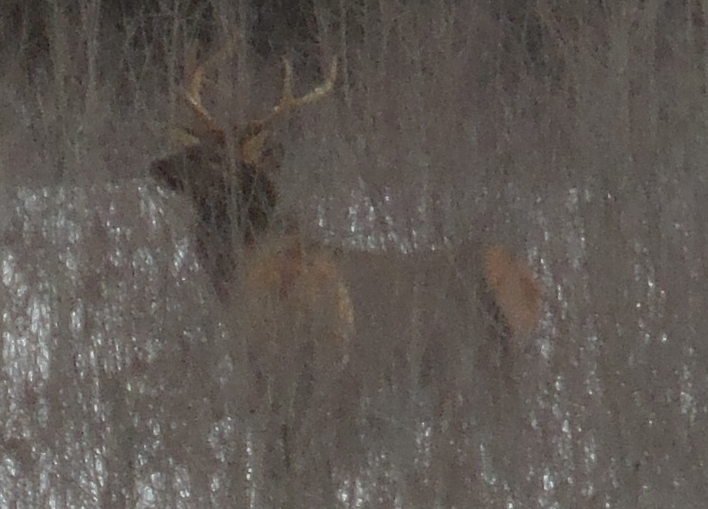 A young bull elk near our camp in the Pigeon River Country. A young bull elk near our camp in the Pigeon River Country. “I am so thankful to whoever the guy was who had the idea for this place,” said my dad. “We’d have to be millionaires to buy property like this for four guys to hunt.” That guy was Parrish Storrs (P.S.) Lovejoy, the first Game Division Chief for the Michigan Department of Conservation (now DNR) and a contemporary of Aldo Leopold, and the place is the Pigeon River Country, also known as the “Big Wild.” Most of its 105,000-plus acres of public land was purchased through hunting license dollars and tax reversion in the early twentieth century under Lovejoy’s leadership and vision, with more added later on by the Michigan Natural Resources Trust Fund. We set up our new deer camp here on public land for the first two weekends of firearm deer season, and it did not disappoint. My dad, Denny, and I had the idea to start a new deer camp with my brother Kellen since my brother wasn’t able to make it to our old deer camp on Beaver Island on a regular basis. But without hundreds of thousands of dollars to purchase hunting property, we knew we’d locate it on public land. And, with my dad and brother living in Gaylord, there’s no better public land than the Pigeon River Country (PRC), which also happens to be my favorite place to hunt, fly-fish, backpack, volunteer on fish and wildlife habitat projects, and generally roam. My dad and brother have spent plenty of time horseback in the PRC, too. We scouted a few different areas of the PRC for deer sign and potential camp locations in the months before firearm season, and found plenty. Ultimately, after talking to elk guide Preston Casselman, we decided on an area with less hunting pressure and good habitat (don’t even ask me where), rather than abundant deer sign, excellent habitat and lots of other hunters. We bought a used old-school Montana Canvas wall tent, including poles and wood stove and some used cots, as well as some new sleeping bags and pop-up blinds from Jay’s Sporting Goods in Gaylord. Then my cousin Scott let us know that he was in, too, so we had four guys for deer camp, just enough for euchre! So, for less than $1,000, we had a deer camp and a place to hunt. We had a great time roaming ridges, sitting at the edge of swamps, learning the area, playing euchre and telling stories. We saw a few deer including several does, a couple spikes my brother passed on, a six-point my dad passed on, an eight-point my cousin spooked while turning in his blind, along with a few elk and a coyote. I tracked a couple bucks this weekend but never saw them. We didn’t get any deer, but they were there. The opportunity’s there, and a couple hunters hunting just south of us scored ten and eight-point bucks, respectively. We just have to learn how to hunt this area better. Packing up camp on Sunday, after talking about how much fun we had, my dad turned to me and said, “We’re pretty lucky. Who else can do this?” Actually, I told him, everyone can. That’s the beauty of public land. Anyone could do what we did. We just went and did it. And many other hunters do every year. That’s the “democracy” of hunting, under the North American Model of Conservation. It’s not that we vote on every hunting and fishing regulation – we base that on sound science – but everyone has the opportunity to hunt; it’s not just a privilege for the privileged, as it was in much of Europe before ‘Murica. And public land is critical to that, because without a place to hunt, what good is the right? Public land isn’t a perfect place to hunt, but with a little cooperation with your fellow public land hunters, it can be a good place to hunt. We stopped and talked with several other hunters in the area. Asked them what general area they were hunting, let them know where we would be, and left each other with “good luck” and mutual understandings that we wouldn’t interfere with each other’s hunts. And we didn’t. Public land can get better, too. And it is. The DNR is investing a significant portion of the increase in hunting license sales in improving public land wildlife habitat, including through its Wildlife Habitat Grant program. MUCC applied for and was awarded a $156,000 Wildilfe Habitat Grant to improve public land wildlife habitat through our On the Ground (OTG) program, and we’re implementing that through at least 25 – and probably more – projects on publicly accessible hunting land around the state, including one or two in the Pigeon River Country. That’s part of why I’m proud that we’ll have Sarah Topp joining us as our new Huron Pines AmeriCorps member to help organize and manage volunteer projects. To see a little of why we knew she was the right person for the job, check out this featurefrom Gaylord Herald-Times outdoor columnist Chris Engle on her work with the Pigeon River Country Association in 2012. You can sign up here for our first project of the year in just a couple weeks at Allegan State Game Area to improve grouse and woodcock habitat by cutting old aspen to make room for new aspens. Also, mark your calendars for January 17: we’re hosting a chainsaw safety training session by Chuck Oslund so that those interested in volunteering in the future can make sure they’re as safe as can be while operating a saw on public land. You can sign up here for the training. But public land isn’t universally appreciated. For every acre of public land, there is someone or some entity that wants to privatize it. There are bordering land owners who try to post a few extra acres of neighboring public land. Industries have development ideas for a mine or a potato farm or something else. And those plans aren’t always bad, as long as there’s a transparent and public process and we don’t lose hunting land or critical wildlife habitat. We even have legislation making sure that there is no net loss of public hunting land under the DNR’s control. But it’s up to us – citizens, hunters, conservationists and watchdog groups like MUCC – to make sure that happens. Public land gets sold sometimes, and sometimes it should. Prioritized parcels get purchased by the state, and sometimes they should. Natural resources from public lands get sold, either through mineral lease or timber sale, and often that has no negative effect or even a positive effect on the land for wildlife. The proceeds from those sales fund more public land and park improvements through the Michigan Natural Resources Trust Fund, and fire protection through timber sales. Timber cuts allow forest regeneration, young browse for wildlife, edge habitat and cover when the tops are left. But if the processes aren’t transparent, then there is a lack of trust in the system, and that jeopardizes legitimate public land transactions. That’s why we have strategic land management plans to guide these transactions and spell out the public process. And our state, both government, agencies, and citizens, need to make sure we define, implement and follow those plans to ensure transparency. At its heart, public land is about democracy. It’s the promise that if you want to hunt, and you purchase your license, you’ll have a place to do so. And if four guys scrap together enough money for a used tent and new sleeping bags, they’ll have a deer camp and the opportunity to hunt deer, even if they don’t end up shooting one. That’s what I’m thankful for. Thank you P.S. Lovejoy. |
AUTHOR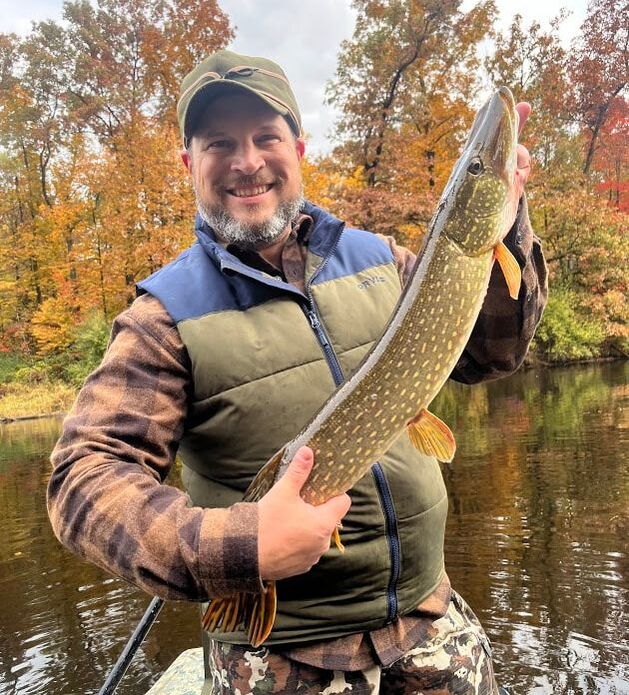
Drew YoungeDyke is an award-winning freelance outdoor writer and a Director of Conservation Partnerships for the National Wildlife Federation, a board member of the Outdoor Writers Association of America, and a member of the Association of Great Lakes Outdoor Writers and the Michigan Outdoor Writers Association.
All posts at Michigan Outside are independent and do not necessarily reflect the views of NWF, Surfrider, OWAA, AGLOW, MOWA, the or any other entity. ARCHIVES
June 2022
SUBJECTS
All
|

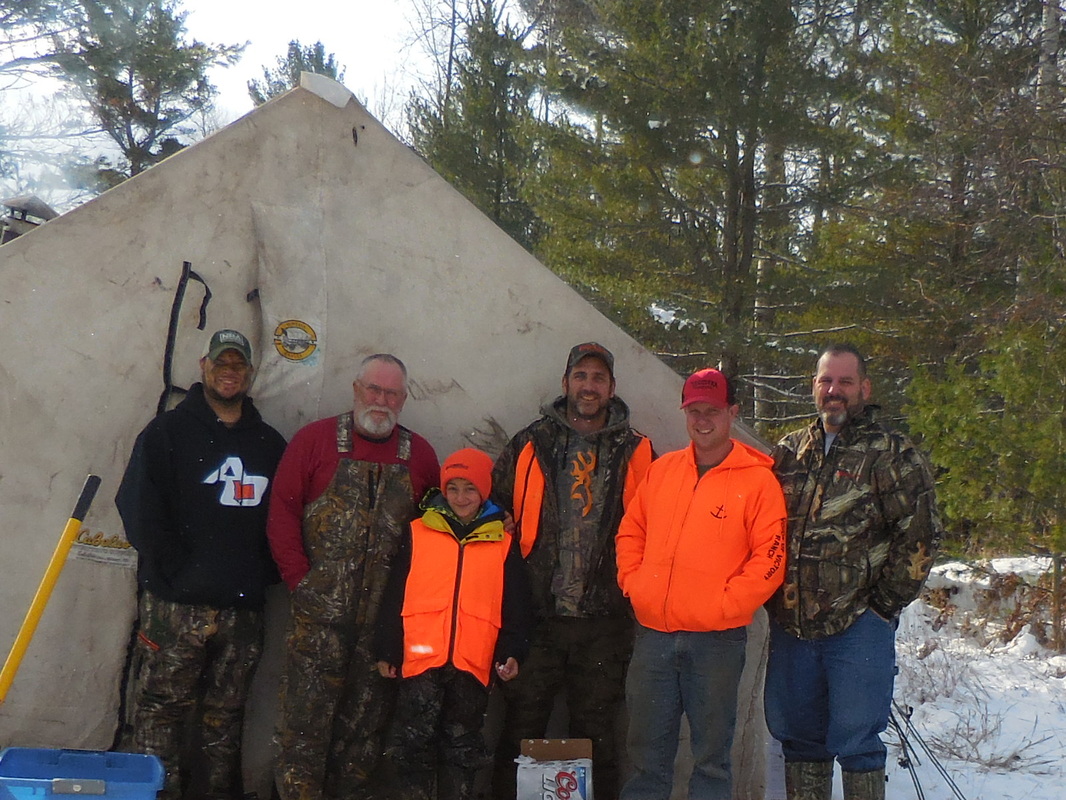
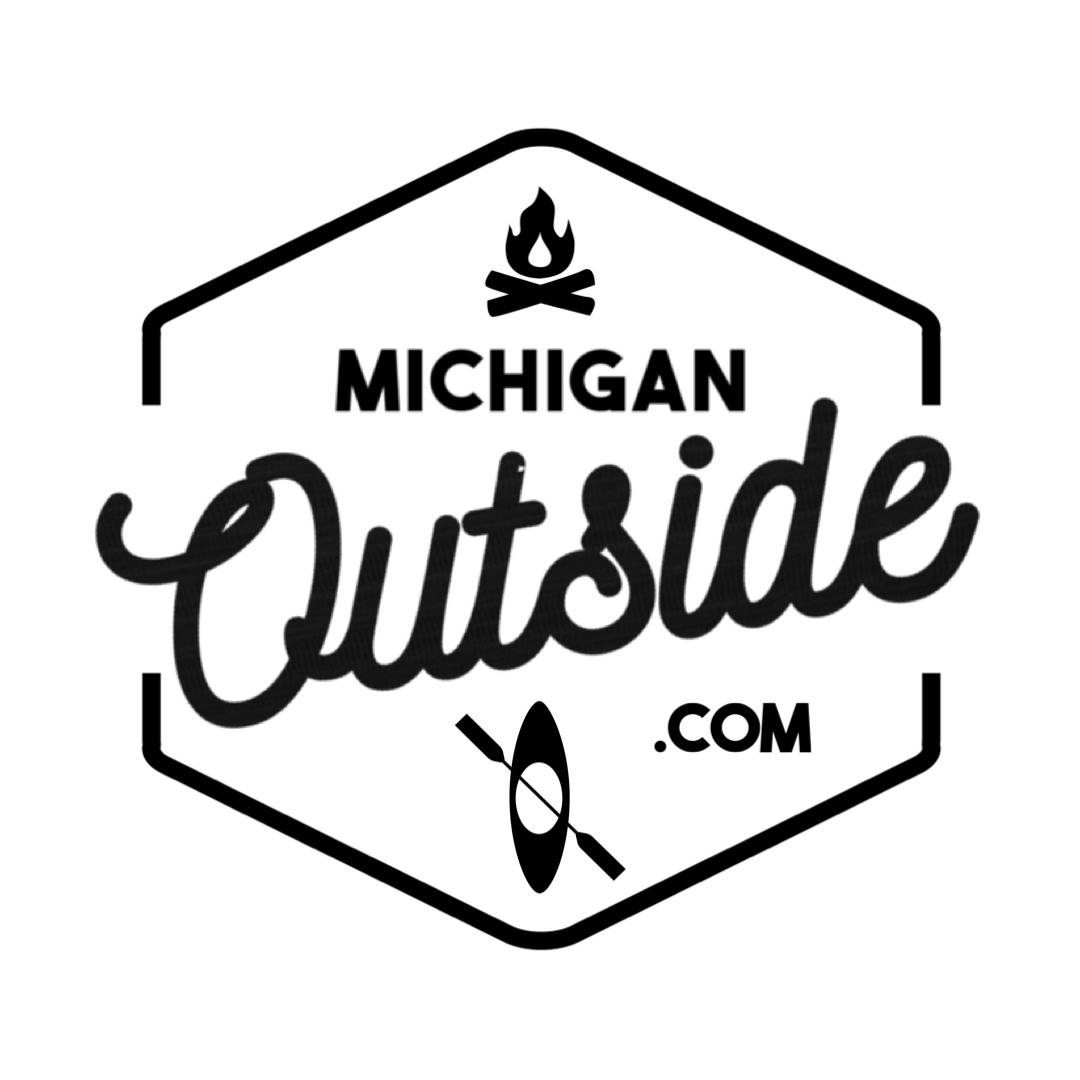
 RSS Feed
RSS Feed